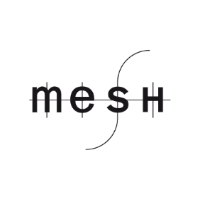Mondays (October 16, 2023 – January 29, 2024) | 12.00 – 13.30
Philosophikum, Seminar Room S93
The Environmental Humanities are a new multi-, inter- and transdisciplinary field of research that addresses the socio-cultural dimensions of the pressing sustainability and environmental problems of our time. One of the central tasks is to explore and investigate cultural assumptions, attitudes, meanings and values from different disciplines in the humanities and social sciences.
So what do language, communication or linguistics have to do with sustainability, environmental problems or climate change?
In linguistics, we not only examine linguistic phenomena on different levels, but can also analyse language use in order to work out culturally embedded patterns of linguistic action. The analysis of (media) discourse has become one of the standard cultural and sociolinguistic methods for researching social negotiations, controversies and current controversial topics and their development from a linguistic perspective. Usually, corpora of press releases, social media contributions, advertising, but also corporate sustainability communication and much more are examined. Depending on the linguistic interest, semantic, pragmatic or cross-cutting analysis foci can be set, for example, such as multimodal image-text analyses, analyses of rhetorical strategies or alike.
Procedure:
In the seminar, we will first discuss (German and English) methodological introductions into environmental humanities, linguistic discourse analysis (e.g. according to Spitzmüller/Warnke 2011) and other methods for the study of environmental and sustainability communication. Afterwards, we will be working in small groups to develop focused discourse-analytical projects, which at the end of the seminar will be transformed into a scientific poster by each group. Those posters will be presented in Cologne and hybrid via zoom at the 17th HEE-Winter Meeting Sustainability and Equitable Energy Transition. On the HEE website, you can find the programme and the full abstract book – including the student presentation’s abstracts.
Further information for students of the University of Cologne: Klips
German Version:
Masterseminar | Linguistische Diskursanalyse in den Environmental Humanities
Die Environmental Humanities sind ein neues multi-, inter- und transdisziplinäres Forschungsgebiet, das sich mit den soziokulturellen Dimensionen der drängenden Nachhaltigkeits- und Umweltprobleme unserer Zeit befasst. Eine der zentralen Aufgaben besteht darin, kulturelle Annahmen, Einstellungen, Bedeutungen und Werte aus verschiedenen geistes- und sozialwissenschaftlichen Disziplinen zu beleuchten und zu untersuchen.
Was haben nun Sprache, Kommunikation oder die Sprachwissenschaft mit Nachhaltigkeit, Umweltproblemen sowie dem Klimawandel zu tun?
In der Sprachwissenschaft untersuchen wir nicht nur sprachliche Phänomene auf verschiedenen Ebenen, sondern können ebenfalls den (aktuellen) Sprachgebrauch analysieren, um kulturell verankerte Muster sprachlichen Handelns herauszuarbeiten. Die Analyse von (medialen) Diskursen gehört mittlerweile zu den üblichen kultur- und soziolinguistischen Verfahrensweisen, um gesellschaftliche Aushandlungen, Kontroversen und jeweils aktuelle, brisante Themen und deren Entwicklung aus linguistischer Perspektive zu erforschen. Betrachtet werden hierbei üblicherweise Korpora aus Pressetexten, Social Media-Beiträge, Werbung, aber auch unternehmerische Nachhaltigkeitskommunikation und vieles mehr. Je nach linguistischem Interesse können z.B. semantische, pragmatische oder querliegende Analyseschwerpunkte gesetzt werden, wie Bild-Text-Analysen, Analysen von rhetorischen Strategien oder Ähnliches.
Ablauf:
Im Seminar werden wir uns zunächst mit (deutsch- und englischsprachiger) Grundlagenliteratur zu Environmental Humanities, linguistischer Diskursanalyse (im Sinne von Spitzmüller/Warnke 2011) und weiteren Methoden der Untersuchung von Umwelt- und Nachhaltigkeitskommunikation beschäftigen. Anschließend werden wir in Kleingruppen unter Anleitung fokussierte diskursanalytische Projekte durchführen, die seminarabschließend in ein wissenschaftliches Poster überführt werden sollen, das im Rahmen des 17ten HEE-Wintermeetings Sustainability and Equitable Energy Transition präsentiert wird. Auf der Website des HEE-Journals ist das Programm der Veranstaltung sowie das vollständige Abstractbook zum Download verfügbar, inklusive der Abstracts zu allen Studierendenpräsentationen.
Weitere Informationen für Studierende der Universität zu Köln: Klips
